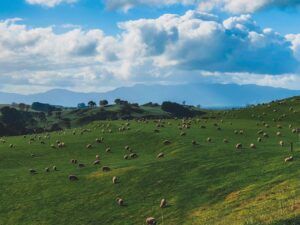Island Farming and Traditional Medicinal Plants
In the world of island farming, where land is often scarce and resources limited, the cultivation of traditional medicinal plants emerges as both a practical necessity and a cultural heritage. These islands, often isolated from mainland resources, have long relied on the wealth of botanical treasures that surround them for their healthcare needs. In this exploration, we delve into the intricate relationship between island farming and traditional medicinal plants, uncovering their significance, challenges, and potential for the future.

Preserving Ancient Wisdom
Island communities have a rich history of traditional healing practices passed down through generations. These practices are deeply rooted in the knowledge of local flora and the wisdom of ancestors. Traditional healers, often revered members of the community, possess an intimate understanding of the medicinal properties of plants found in their surroundings. From soothing aches and pains to treating more serious ailments, these plants form the cornerstone of island healthcare systems.
The Diversity of Island Flora
One of the remarkable aspects of island farming is the incredible diversity of flora that can be found within relatively small geographical areas. Islands boast unique ecosystems, often home to endemic plant species found nowhere else on Earth. These plants have adapted to their specific environments over millennia, developing potent medicinal properties along the way. From the lush rainforests of tropical islands to the windswept cliffs of temperate archipelagos, each island ecosystem harbors its own treasure trove of healing plants.
Challenges of Island Farming
Despite the abundance of medicinal plants, island farming faces numerous challenges. Limited land availability, unpredictable weather patterns, and the threat of invasive species all pose significant obstacles to cultivation efforts. Additionally, the rapid pace of development and urbanization on many islands has led to habitat destruction and the loss of valuable plant species. As a result, traditional medicinal knowledge is at risk of being lost if not actively preserved and cultivated.
Sustainable Cultivation Practices
In response to these challenges, many island farmers are embracing sustainable cultivation practices to ensure the long-term viability of traditional medicinal plants. Agroforestry, for example, integrates trees and shrubs into agricultural systems, mimicking natural ecosystems and enhancing biodiversity. By intercropping medicinal plants with food crops, farmers can maximize land use efficiency while promoting soil health and conservation.
Community Empowerment
Island farming is inherently community-centric, with cooperation and mutual support being essential for success. The cultivation of traditional medicinal plants further strengthens these bonds, fostering a sense of collective empowerment and self-reliance. Community-led initiatives, such as herbal medicine gardens and cooperative nurseries, serve not only as sources of healing but also as hubs for knowledge exchange and cultural preservation.
The Global Resurgence of Herbal Medicine
In recent years, there has been a growing interest in herbal medicine worldwide, fueled by a desire for natural remedies and a renewed appreciation for traditional healing practices. This global resurgence presents both opportunities and challenges for island farming communities. On one hand, increased demand for traditional medicinal plants can provide economic opportunities for farmers, driving innovation and investment in cultivation techniques. On the other hand, there is a risk of overexploitation and unsustainable harvesting if not managed carefully.
Building Bridges Between Tradition and Modernity
Finding a balance between tradition and modernity is key to the sustainable development of island farming and the preservation of traditional medicinal knowledge. Integrating traditional practices with modern agricultural techniques, such as organic farming and permaculture, allows farmers to leverage the best of both worlds. Furthermore, partnerships between local communities, government agencies, and academic institutions can help ensure the conservation of biodiversity and the transmission of traditional knowledge to future generations.
Island farming and traditional medicinal plants are intertwined in a delicate dance of resilience, adaptation, and preservation. As stewards of their land and heritage, island farmers play a vital role in safeguarding the natural resources that sustain both their communities and the planet. By embracing sustainable cultivation practices and nurturing the rich tapestry of traditional medicinal plants, they ensure that the healing legacy of island ecosystems endures for generations to come.